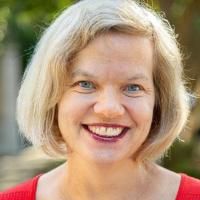Magic moment? Maternal marriage for children born out of wedlock.
Date
2014-08
Authors
Journal Title
Journal ISSN
Volume Title
Repository Usage Stats
views
downloads
Citation Stats
Abstract
To test the existence of the "magic moment" for parental marriage immediately post-birth and to inform policies that preferentially encourage biological over step parent marriage, this study estimates the incidence and stability of maternal marriage for children born out of wedlock. Data came from the National Survey of Family Growth on 5,255 children born non maritally. By age 15, 29 % of children born non maritally experienced a biological-father marriage, and 36 % experienced a stepfather marriage. Stepfather marriages occurred much later in a child's life-one-half occurred after the child turned age 7-and had one-third higher odds of dissolution. Children born to black mothers had qualitatively different maternal marriage experiences than children born to white or Hispanic mothers, with less biological-parent marriage and higher incidences of divorce. Findings support the existence of the magic moment and demonstrate that biological marriages were more enduring than stepfather marriages. Yet relatively few children born out of wedlock experienced stable, biological-parent marriages as envisioned by marriage promotion programs.
Type
Department
Description
Provenance
Citation
Permalink
Published Version (Please cite this version)
Publication Info
Gibson-Davis, Christina (2014). Magic moment? Maternal marriage for children born out of wedlock. Demography, 51(4). pp. 1345–1356. 10.1007/s13524-014-0308-7 Retrieved from https://hdl.handle.net/10161/9196.
This is constructed from limited available data and may be imprecise. To cite this article, please review & use the official citation provided by the journal.
Collections
Scholars@Duke

Christina M. Gibson-Davis
Christina M. Gibson-Davis is a professor in the Sanford School of Public Policy, Duke University, with a secondary appointment in sociology. Her research interests center around social and economic differences in family formation patterns. Her current research focuses on the how divergent patterns of family formation affect economic inequality.
Unless otherwise indicated, scholarly articles published by Duke faculty members are made available here with a CC-BY-NC (Creative Commons Attribution Non-Commercial) license, as enabled by the Duke Open Access Policy. If you wish to use the materials in ways not already permitted under CC-BY-NC, please consult the copyright owner. Other materials are made available here through the author’s grant of a non-exclusive license to make their work openly accessible.
